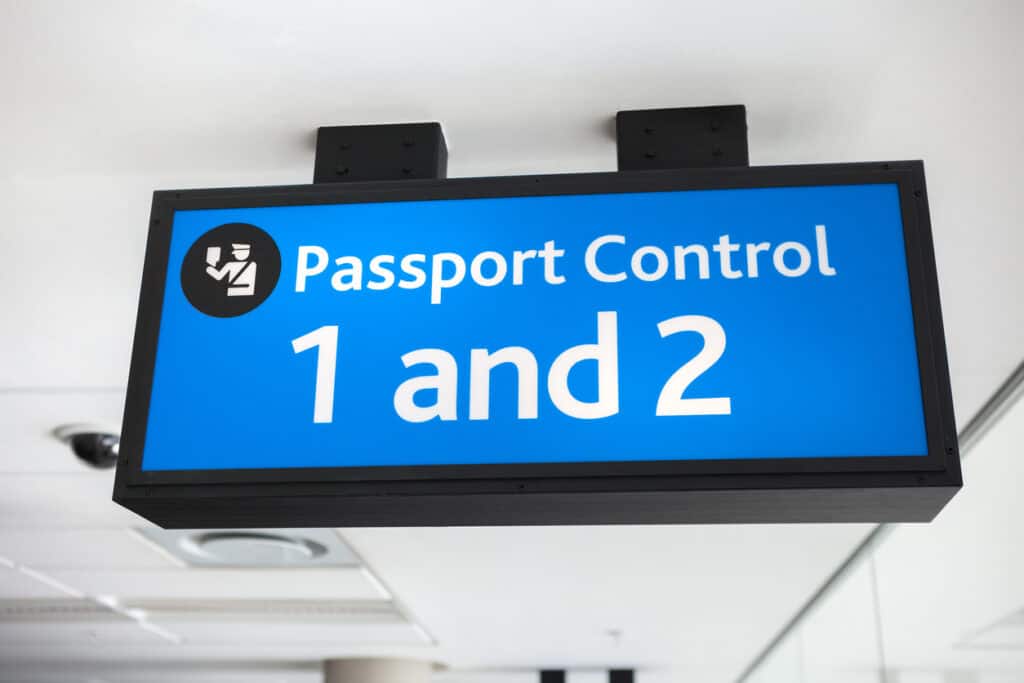James Tooze takes a look at what these proposals could mean for the science and engineering sector
Government outlines proposals for future immigration system
21 Feb 2020
It has been no secret that the new Conservative Government wanted to introduce a ‘points-based’ immigration system following the UK’s exit from the EU. This week saw the publication of a policy document outlining the intentions of the Government to create a new immigration system to run from January 2021, subjecting citizens from across the world to the same immigration conditions. The UK’s current non-EEA immigration system operates as a points-based system in all but name, and new proposals encompass many similar characteristics. There are some key differences however, and some important questions that remain unanswered.
What will the ‘points-based’ system look like?
The Government first published plans for a future immigration system in December 2018, stating they wanted to increase the scope of a ‘skilled’ visa route. This new skilled route will encompass everyone with formal qualifications at RQF Level 3 and above (anyone with A Levels or equivalent in non-jargon terms…). As a result of these changes, the Migration Advisory Committee (MAC) was commissioned by Government to assess appropriate salary thresholds for the future immigration system. The MAC concluded that the new experienced salary threshold should be £25,600, with a £17,920 salary threshold for new entrants or graduates. The MAC calculated these figures by analysing salary data, and setting the threshold at the 25th percentile of all RQF 3 and above roles (meaning that 75% of workers in these jobs can expect to earn over £25,600), while implementing a 30% reduction in experienced salary thresholds to calculate that of a new entrant. The Government has taken on these figures but has rejected the MAC’s conclusion that salary thresholds should be the main proxy for skill in the future immigration system.
The current non-EEA immigration system needs an individual and an employer to meet certain criteria to be eligible for a Tier 2 work visa. This is no different than the proposed points-based system, but the goalposts have moved and I will try to illustrate the key changes in the table below:
| Current non-EEA Tier 2 visa | Future points-based skilled worker system | |
| Does someone have to have a job offer? | Yes | Yes |
| Does their new employer have to be registered as trusted? | Yes | Yes |
| Does the individual need to prove they can speak English? | Yes | Yes |
| Does the job need to be at a minimum skill level? | Yes | Yes |
| Does the employer need to prove nobody in the UK is capable of doing the job? | Yes – with some exceptions | No |
| Is there a cap on visa numbers? | Yes | No |
| Does the individual have to earn a certain salary in an experienced role? | Yes – £30,000 or appropriate rate | Yes – £20,480 |
| Can you be eligible for a visa through a combination of non-essential, interchangeable conditions? | No | Yes |
Hopefully that is a useful visualisation, but also raises questions. Why is the minimum salary in the new points-based system £20,840 when the MAC have said it should be £25,600? What are non-essential interchangeable conditions? Bear with me while I try to explain the new features of the points-based system.
The Government has decided that there will only be three essential conditions for a skilled work visa in the points-based system, with individuals then being able to become eligible for a visa in a combination of ways. These three essential conditions are:
- The individual must have a job offer from an organisation registered as trusted with the Home Office
- The job must be of an appropriate skill level (RQF Level 3 or above)
- The individual must prove they can speak English.
The Government has stated that in order to be eligible for a visa, they must accumulate 70 points, graded against the characteristics in the table below.

The three essential criteria would give the individual 50 points, leaving them needing to gain at least 20 points to be eligible for a visa. This is the key difference in the new points-based system, the individual can gain these extra points in a number of different ways, described by the ‘tradeable’ characteristics in the table. As the table shows, if an individual meets the essential criteria and will be earning over £25,600, they will be automatically eligible for a visa. The sliding salary scale, however, provides greater opportunities for those earning less to still potentially be eligible for a visa. The Government have decided to set the lowest salary level at £20,480, and individuals earning less than this with at least some work experience would not be eligible for a visa. However, an individual can be earning less than £25,600 by meeting the other criteria relevant to their new job. Shall I dream up some more examples? Assuming that each hypothetical individual meets the essential criteria…
| Combination of characteristics | Number of points | Eligible for a visa? |
| Earning £26,000 with a STEM PhD | 90 | Yes |
| Earning £20,000 with a STEM PhD | 70 | No |
| Earning £24,000 with a PhD | 70 | Yes |
| Earning £22,000 in a job deemed to be in shortage | 70 | Yes |
| Earning £25,000 | 60 | No |
For the research sector, this flexibility should present a greater number of opportunities to employ an individual. It is pleasing to see that the Government have continued their recognition of PhD-level roles, particularly in STEM disciplines, as a way to support the recruitment of talented individuals. It is also important that coming to work in shortage role, providing the person will be earning at least £20,480 will be eligible for a visa. The MAC will designate the roles in which it is deemed there is a shortage, but the current list contains virtually all roles in engineering amongst a large number of others in STEMM professions.
I have written an additional piece to supplement this, talking about the unanswered questions and how this system will form just a part of the overall immigration system in the future.
Related resources

A week on from the publication, Policy Manager Camilla d’Angelo takes a look at some of the questions that remain to be resolved and what to expect next for the Immigration White Paper.

Policy Manager Camilla d’Angelo takes a look at what the Immigration White Paper means for attracting international R&D talent to the UK.

In advance of the forthcoming Immigration White Paper, CaSE and 35 other organisations have written to select Westminster Parliamentarians.

This briefing summarises attitudes to immigration, international students and researchers, and their impact on UK R&D. It is based on evidence from a nationally representative survey of 4,100 UK adults in June 2024 and two focus groups in December 2024.